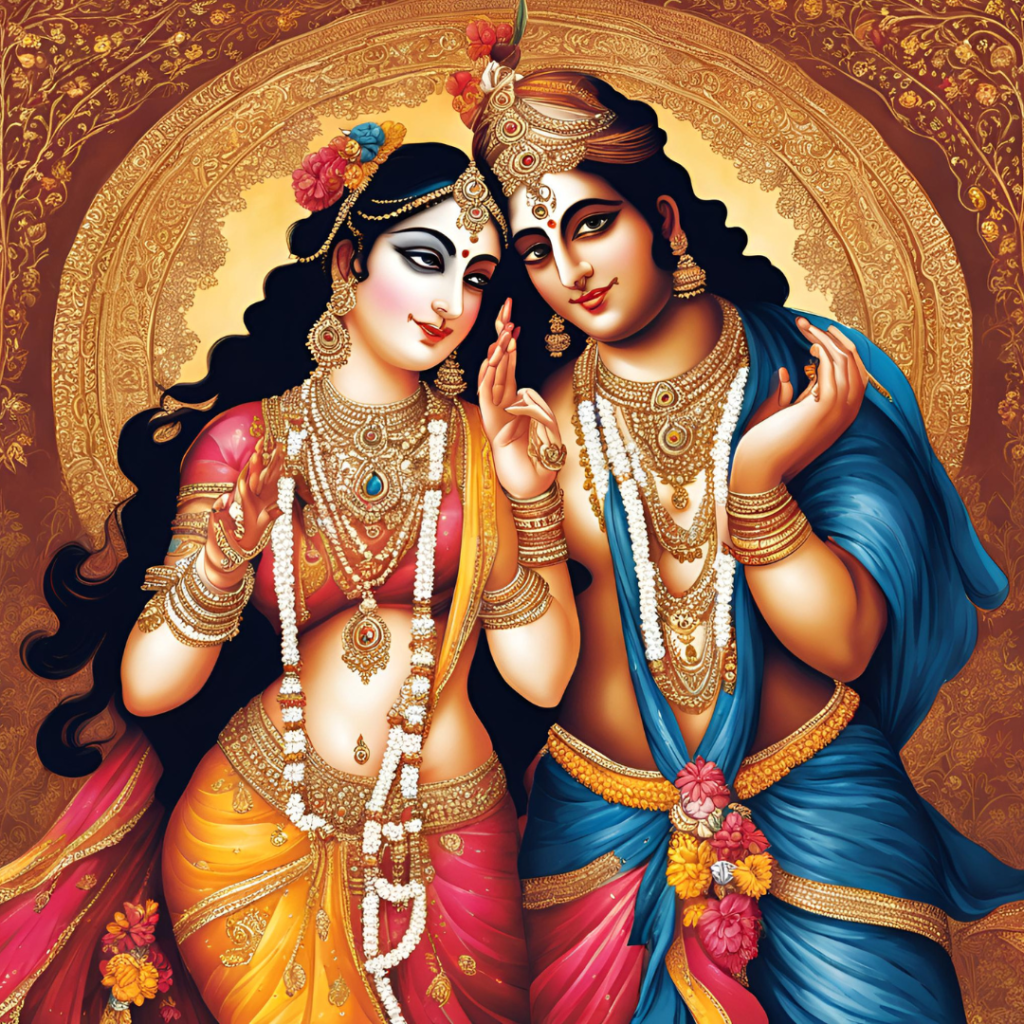Janmashtami, also known as Krishna Janmashtami or Gokulashtami, is a Hindu festival celebrated in August or September, aligning with the Ashtami (eighth day) of the Krishna Paksha (dark fortnight) in the Bhadrapada month of the Hindu lunar calendar. This year the auspicious day of Janmashtami falls on 26th August i.e Monday.The festival is deeply rooted in the historical and mythological traditions of India, with the birth of Lord Krishna being prophesied to be the harbinger of the downfall of his tyrannical maternal uncle, King Kansa.
History
Krishna was born to Devaki and Vasudeva in Mathura under extraordinary circumstances, which were prophesied to be the harbinger of the downfall of his tyrannical maternal uncle. Fearing the prophecy that Devaki’s eighth son would be his end, Kansa imprisoned Devaki and Vasudeva and mercilessly killed their first six children.
The seventh child, Balarama, was mystically transferred from Devaki’s womb to that of Rohini, Vasudeva’s first wife, and thus escaped death. When Krishna was born as the eighth child, divine interventions ensured his survival.
It is said that on the night of Krishna’s birth, the prison guards fell into a deep slumber, the doors of the prison opened by themselves, and the chains that bound Vasudeva were miraculously broken. Vasudeva then carried the infant Krishna across the turbulent Yamuna River to Gokul, where Krishna was raised by his foster parents, Nanda and Yashoda.

Significance
Janmashtami holds profound spiritual significance for devotees, as it marks the divine advent of Lord Krishna, who is revered as the Supreme Being and the protector of dharma (righteousness). His philosophy advocates the path of devotion (bhakti), selfless action (karma), and knowledge (jnana), leading to the ultimate goal of liberation (moksha). His life exemplifies the principles of righteousness, compassion, humility, and love, serving as a moral compass for millions.
Janmashtami is celebrated with great fervour and elaborate rituals across India, each region bringing its unique flavour to the festivities. The day typically begins with a fast, which is observed by many devotees until midnight, the believed time of Krishna’s birth. Temples and homes are adorned with flowers, lights, and rangolis, and idols of baby Krishna are placed in cradles and worshipped.
Celebrations around the globe.
In Maharashtra, Janmashtami is synonymous with the Dahi Handi tradition, which celebrates Krishna’s love for butter and curd. Young men, known as Govindas, form human pyramids to reach and break a clay pot filled with curd, butter, and money, hung high above the ground. This event has evolved into a community celebration, with large crowds gathering to cheer on the participants.
In Gujarat, Janmashtami is marked by fasting, singing devotional songs, and participating in Raas Garba, a traditional dance form that symbolizes the joyful and playful spirit of Krishna. Temples across the state, particularly in Dwarka, are beautifully decorated, and special prayers and rituals are performed throughout the day.
In Tamil Nadu and Karnataka, Janmashtami is celebrated with the drawing of kolams and the preparation of various sweets and savouries. In Karnataka, the Udupi Sri Krishna Matha is a significant centre of Janmashtami celebrations, attracting thousands of devotees.
Janmashtami is a Hindu festival celebrated worldwide, with the International Society for Krishna Consciousness (ISKCON) playing a significant role in spreading the teachings of Krishna. The festival is celebrated in various cities across the United States, the United Kingdom, Africa, and Southeast Asia. In the United States, ISKCON temples host grand events, including processions, devotional singing, and dance performances.
In the United Kingdom, the Bhaktivedanta Manor near London hosts one of the largest Janmashtami festivals outside India, with over 60,000 people attending each year. Celebrations include abhishekam, drama performances, and serving prasadam. In Africa, countries like Kenya, South Africa, and Mauritius also celebrate Janmashtami, with decorated temples and special prayers.
In Southeast Asia, countries like Malaysia, Singapore, and Indonesia celebrate Janmashtami with devotional singing, dance performances, and reenactment of Krishna’s life stories. The Bhagavad Gita, a 700-verse dialogue between Krishna and the warrior prince Arjuna, addresses fundamental questions about life, duty, righteousness, and the nature of the self.
The central theme of the Bhagavad Gita is the concept of dharma, or righteous duty, which emphasizes performing one’s duty without attachment to results. This teaching encourages individuals to focus on their responsibilities without being swayed by success or failure. Bhakti, or devotion, is exemplified in Krishna’s life, emphasizing pure, unconditional love for God.
Karma yoga, or selfless action, is advocated by Krishna as a means to attain spiritual growth. He teaches that one should perform their duties without any desire for personal gain or personal gain.
Welcome to Hello Student, your go-to website for all things of life! We cover everything from academics and health to entertainment, travel, and beyond. Whether you’re looking for study tips, wellness advice, the latest OTT recommendations, or travel inspiration, we’ve got you covered. Our mission is to provide valuable content that informs, entertains, and inspires people to live their best lives. Dive in and explore a world of knowledge tailored just for you!
If you are a competitive exam aspirant or otherwise you wish to gain knowledge about the editorials of newspapers, you can check out our articles for the same.
https://hellostudent.co.in/category/academics
Join our telegram channel for the same

